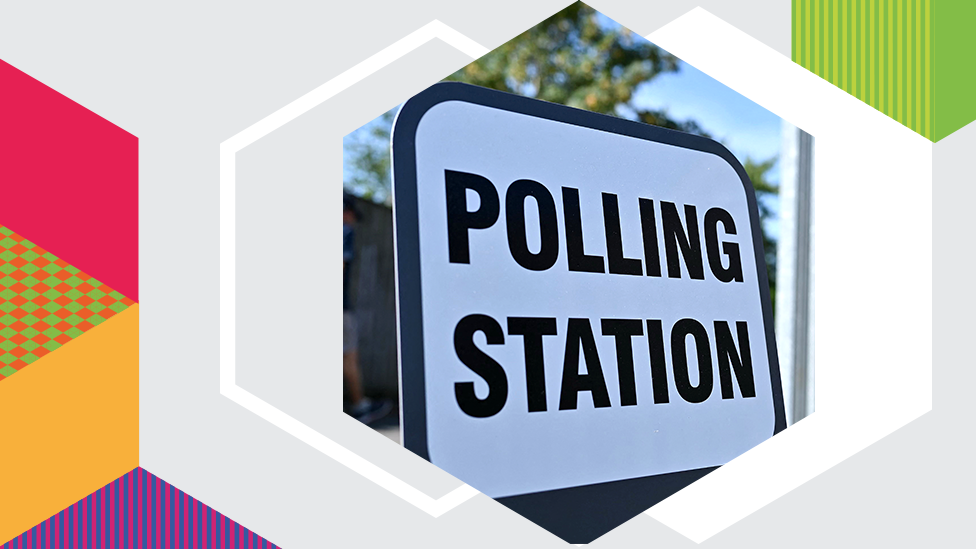Things we learned from West Midlands mayor debate
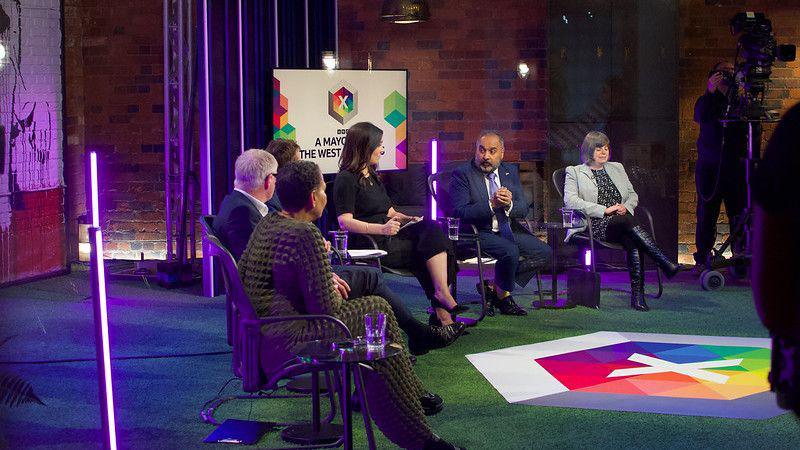
The candidates are hoping to lead the region for the next four years
- Published
Five candidates vying to be West Midlands mayor faced off in a sometimes fiery BBC debate on Thursday night.
With voters heading to the polls on 2 May, the discussion saw contenders clash over council budgets, housing, small businesses, transport and arts.
Funding and budgets were also raised, particularly in the light of Birmigham City Council's effective bankruptcy.
The mayor represents about 2.9 million people and acts as a figurehead and champion for the region.
Who are the mayoral candidates?
First, a quick look at who is standing.
The candidates are Siobhan Harper-Nunes (Green), Richard Parker (Labour), Andy Street (Conservative), Sunny Virk (Liberal Democrats), Elaine Williams (Reform) and Akhmed Yakoob (Independent).
We’ve put together a guide where you can find out everything you need to know about each of the six candidates. Have a read here.
Mayor's record under the spotlight
Mr Street, the incumbent Conservative mayor who took office in 2017, was forced to defend his record throughout the debate.
He said he had attracted investment into the region, spoken to companies from across the world and helped boost tourism through events like the Commonwealth Games.
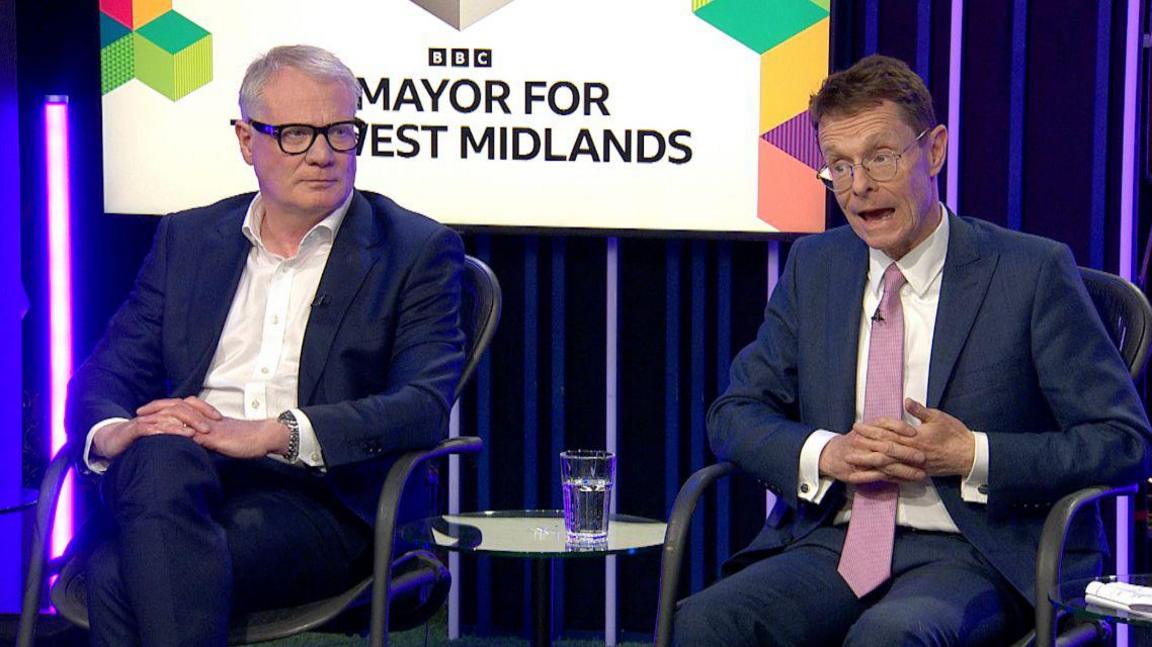
Mr Street (right) clashed with his Labour opponent Mr Parker
With "bankrupt" Birmingham City Council on the minds of voters, candidates including Labour's Richard Parker said the mayor's party was responsible for cutting council budgets to the bone.
But Mr Street criticised how Labour had run that council, and said no-one had ever been charged a penny of mayoral council tax at a time when Birmingham residents faced raising bills.
"You wanted to in 2018. You're being disingenuous," Mr Parker said.
"But it never happened," Mr Street responded.
Brownfield sites
The idea of building on former industrial land, also known as brownfield sites, proved a hit with the candidates as part of their wider housing plans.
Mr Street promised an extra £400m for social home building and said funding was secured to retrofit 50,000 properties.
Mr Parker promised 2,000 units of social housing every year and up to 20,000 by the end of the decade.
Mr Virk for the Liberal Democrats said his party had budgeted for 150,000 social and affordable homes across the UK.
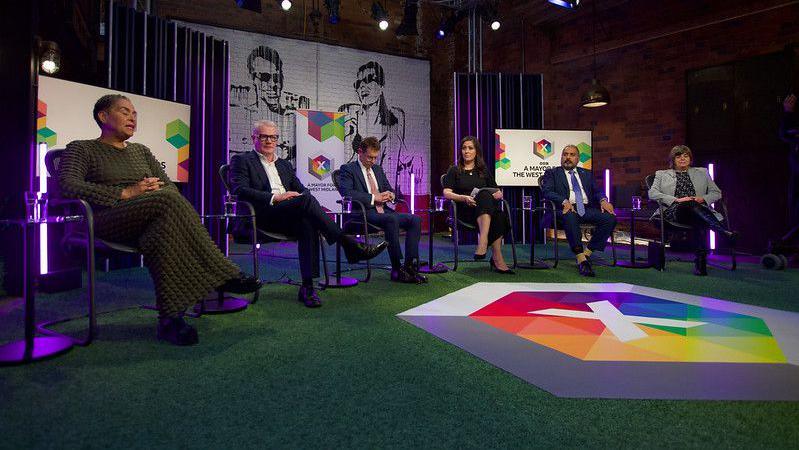
All candidates said they would build on Brownfield sites
The Green Party's Ms Harper-Nunes said significant investment was needed in building social housing and affordable housing.
Ms Williams, for Reform UK, said brownfield sites were part of her plans.
Arts a priority for all candidates
After those working in the creative sector previously warned Birmingham City Council cuts had left the city facing "cultural deprivation", the candidates agreed arts, culture and history were important to the region's success.
Mr Street said he had secured arts funding in the chancellor's last budget and this would be available regardless of who became mayor.
A memorable moment came when an audience member questioned the last time incumbent mayor Mr Street had visited Birmingham’s Ikon Gallery, one such institution that has seen its funding cut.
"I haven't cut any money," Mr Street responded.
"It was about 12 months ago. I've been to Wolverhampton Art Gallery recently. There are many other galleries I've been to."
Transport a major issue
Transport, unsurprisingly, was debated at length.
Liberal Democrat Mr Virk took exception to Mr Street's suggestion that season ticket fares were cheaper in the West Midlands were cheaper than anywhere else.
"A single bus fare in London is £1.75," Mr Virk said. "A single in the Midlands is £2. It's not the cheapest."
Mr Parker said most people depended on buses to get around and he wanted to bring them back into public control like Manchester and Leeds.
But it was Green Party candidate Ms Harper-Nunes who put forward perhaps the most radical policy idea of the evening.
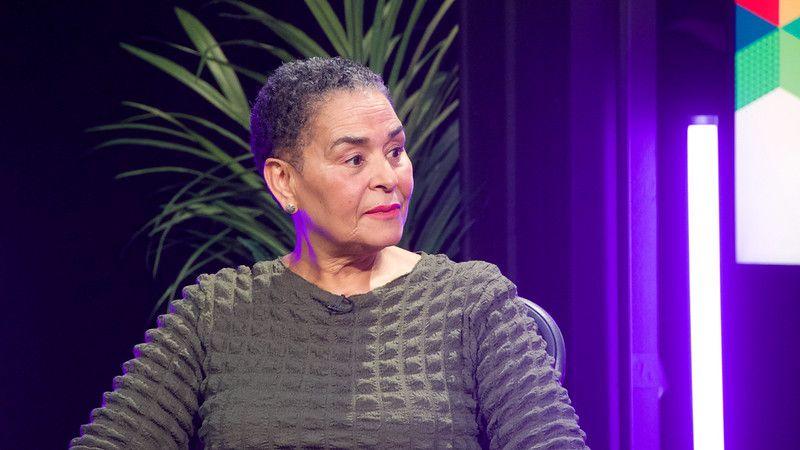
Ms Harper-Nunes wants completely free public transport
The candidate said she wanted to take control of buses and trains with a view to having completely free public transport throughout the West Midlands.
Asked how it would be funded, she said the region would need to fight for funding from central government.
Ms Williams of Reform UK said she believed transport in the region needed a "total rethink".
In a film broadcast as part of the debate, Mr Yakoob said he wanted to make a number of changes, including bringing transport back into public ownership and cleaning up brownfield sites.
Small business on the minds of candidates
Small businesses were also on the minds of the candidates.
Mr Street claimed the success of the Commonwealth Games and Coventry being named City of Culture had helped small businesses by drawing people in.
Ms Williams said it was important people were attracted to the West Midlands and slammed what she called government red tape.
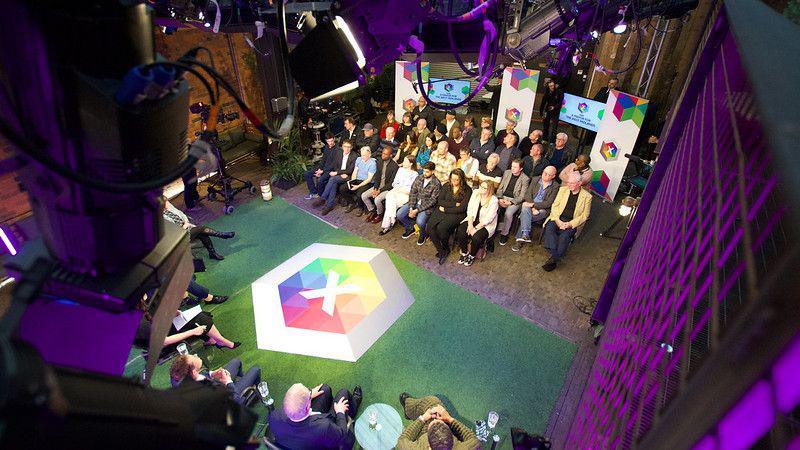
The candidates debated in front of a studio audience
Mr Virk added he believed there was a connection between thriving businesses and poverty, with a focus on apprenticeships and training needed to get youngsters earning and spending.
Mr Parker called small businesses the "bedrock" of the region's economy and said he wanted business rates reform so entrepreneurs did not bear the burden.
Ms Harper-Nunes explained that she ran a small business herself and energy costs meant many were struggling. She said she wanted to create a fund for start ups.
Want to know more?
You can read more about the mayoral candidates on our guide here.
And if you missed any part of the debate, it is available to watch again on BBC iPlayer.
Follow BBC West Midlands on Facebook, external, X,, external and Instagram, external, Send your story ideas to: newsonline.westmidlands@bbc.co.uk, external
Related topics
- Published19 April 2024
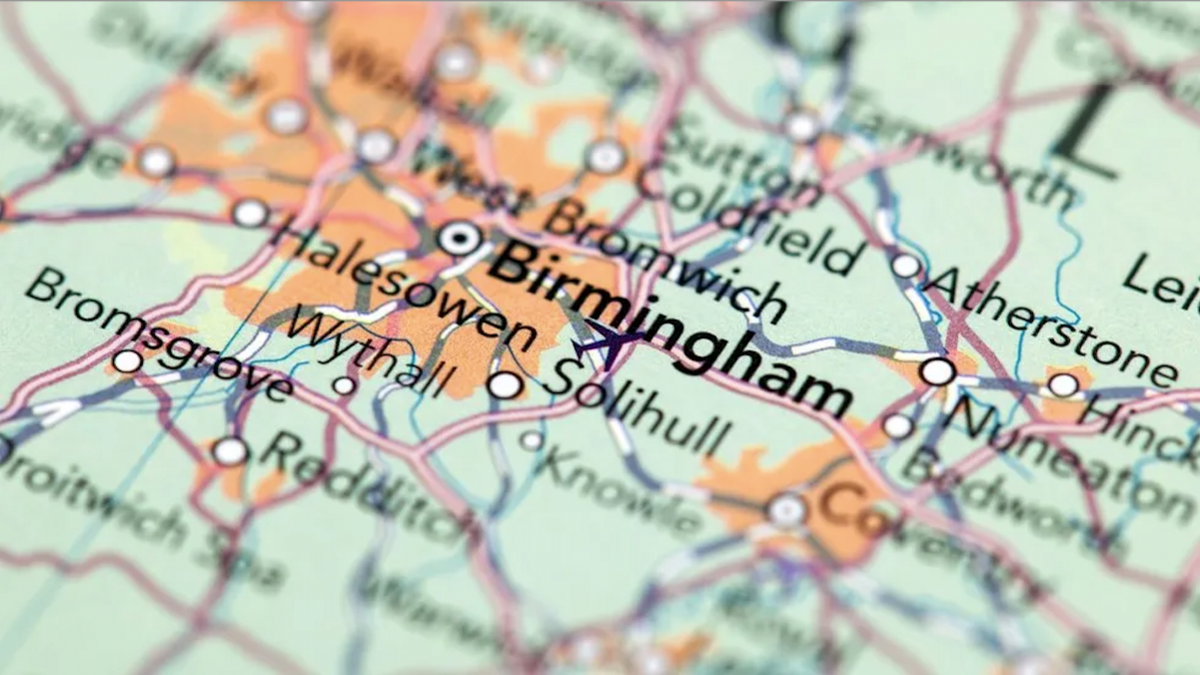
- Published19 April 2024
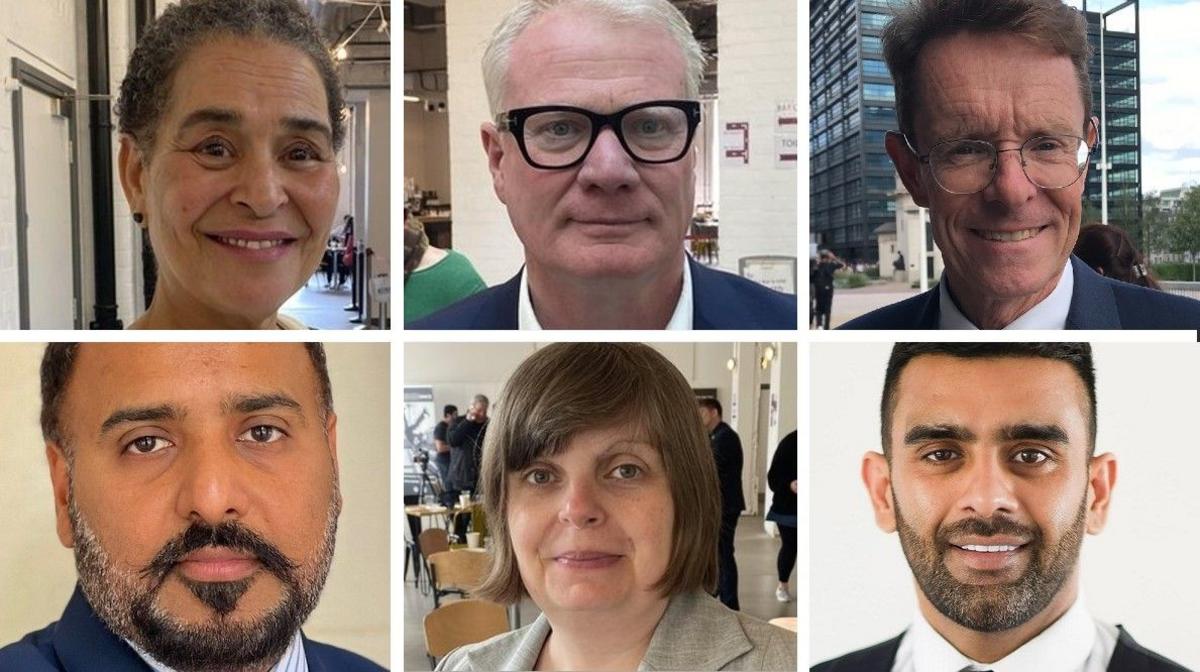
- Published2 May 2024
